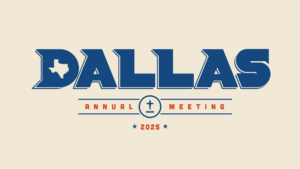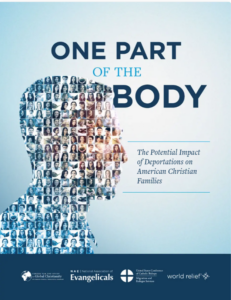
MILL VALLEY, Calif.(BP)–Will Barnwell gets some strange looks walking down the hallways of Golden Gate Baptist Theological Seminary wearing a collar similar to those worn by Roman Catholic clergy. In actuality, it’s his chaplaincy uniform for a local police department.
“Most departments recognize the collar as the symbol of who we are,” he said. “We’re not police officers, but clergy. It points us out to the community.”
The second-year divinity student at the Mill Valley, Calif., seminary is one of four students who volunteers time weekly at local police and sheriff’s departments. Barnwell, Cathy Dundas and Tom Cook work out of the Novato Police Department just north of the seminary, and Sandy Davis works at the Marin County Sheriff’s Department in San Rafael.
“It’s good to be where the substantial, tangible needs are,” said Dundas, who is head chaplain of the team at Novato and is a second-year master of divinity student. “Pastors can easily get caught up in administrative things, but here we’ve got the houses of crisis where the fights and the drugs are. Nobody makes apologies for what we see. This is reality, and it’s what the officers see every day.”
After a period of training, the chaplains spend eight to 20 hours a week riding along with officers on their beats. They counsel officers on and off the job, along with their families, the criminals, crime victims and their families, delivering death notifications.
“The purpose of being a chaplain is to give spiritual support to the officers and deputies when we’re on call and aid them in difficult tasks like informing people that their family members died,” said Davis, a master of divinity student who graduates in December and has been a chaplain since August. “As relationships build, they can use us as a confidential sounding board, and we can provide a listening ear and help them with personal problems. We represent Christ to them through service.”
Although evangelical church attendance in Marin County, Calif., is less than 4 percent, the law enforcement agencies do expect the Christian chaplains to be active in their faith. There is also a screening process, and there is no salary.
“It’s quite common to find other religions on a chaplain staff,” Dundas said. “It’s rare that we don’t have a Buddhist or a Jew. But in our department, to be affiliated with the Marin County Chaplain’s Association, chaplains must be Christian.”
Barnwell said he felt called to be a chaplain in the military before coming to Golden Gate, but now feels God has him in the police chaplaincy for a good reason. “What I like about it is being in an environment where I can bring Christ into a situation by forming relationships with people when they’re doing their work,” he said. “We’re being Christ in times of need and crisis and even joy. We don’t really have drive-by shootings and gangs, but we have officers getting injured and we can respond to those kinds of needs.”
The chaplains mostly reach out to the officers through “ride-alongs,” in which the chaplains accompany officers during a shift and serve as passenger-side counselors.
Davis’ first ride-along started out as a harrowing experience, she said. “I had great concern that I wasn’t going to do things right and I’d get in the deputy’s way … that I’d drop the flashlight or trip or something,” she said with laughter. “Then he gave me a spare set of keys. He said to keep them and if I needed to leave a situation, to take them, get in the car and leave. He said never to lose them.”
In ride-alongs since, Davis said, she has seen deputies catch a burglar, deal with a dead body and handle irrational motorists. Dundas said her ride-alongs have dealt with cases in domestic violence, public drunkenness, fights and property damage. “I’ve learned always to get out of the car with the cop unless there’s a weapon involved,” she said. “They like to test us sometimes, and I try to live up to that, but there are some things I don’t put myself into. And they respect that.”
One instance was a messy suicide. “I probably would have been worse off if I saw it,” she said. “The officers had to go up, but they gave me a choice, and I chose not to.”
Tom Cook, who graduates from Golden Gate Seminary in December with a master of divinity and master of arts in intercultural studies degrees and has been a chaplain in Novato for more than a year, said some chaplains in the past have abused that choice. “One officer won’t let a chaplain ride with him because one wouldn’t get out and patrol a bar with him,” he said.
Notifying family members of crime victim’s or criminal’s deaths is a vital part of being a police chaplain. “The officers tell us that they ‘drop the bomb’ and we pick up the pieces,” Dundas said. “They’ll tell the family and walk out. We ask the family if they have any clergy, need help contacting other family members and want us to stay for safety and security. We even offer to do funerals. I’ve only met with one family this year who had a pastor of any sort.”
Dundas recounted spending time with the family of a 17-year-old who used the father’s gun to commit suicide. “I stayed with the family three hours that night,” she said. “They were totally not religious. I visited them four times after that, and the last time I gave them a Bible and they were gracious. I couldn’t have done that on the first visit. Chaplaincy is a ministry of presence. You rarely do anything profound. I haven’t made any huge dents, but the officers will say, ‘Cathy was there that night.’ That’s what’s important.”
The chaplains in Novato are on-call one week a month, and Barnwell said getting paged is an invigorating moment because the department only pages chaplains for such matters as deaths, rapes or suicides. “The officers are so glad when we’re there to help with those,” he said. “On the way, I just start praying, because what do you say when someone has lost their mom, dad, brother or son? Our greatest thing is just to be there, give them a glass of water and sit by their side. Later, we follow up.”
The chaplains do the same for the officers. They provide food for families of injured officers, attend weddings and give gifts when officers or their families have babies. “It’s fun to be involved in their social lives,” Dundas said. “I went out with seven of the women in the Novato department to dinner and a movie, and they initiated us doing it a second time.”
Tom Cook said a recent chaplains’ appreciation breakfast for the officers was a great way to reach out to his department. The mayor and city council members attended the meal, which featured readings of letters praising the department, a speech by the mayor and a reading of a list of Californian officers killed in the line of duty in the past year.
“It was an opportunity to put in the gospel,” he said. “We talked about how police officers make sacrifices to serve the communities with Jesus’ sacrifice. We have to be gentle and creative when we bring in the gospel.”
But spending four hours a day or night on ride-alongs is the best way the chaplains get to know the officers.
Cook said at first there aren’t many opportunities to witness. “To date, most of my conversations have been relationship-building,” he said. “I’ve discussed with some about truth, but one great conversation I had was about worldviews. That was the closest I’ve come in a ride-along to share the gospel.”
Dundas said after a year in chaplaincy with few conversations about Christ, she had an opportunity to share the gospel with four people in one weekend in the office. Relationships, she said, are the key. “We may just talk about baseball, but we have to form a relationship,” she said. “Novato is not very crime-ridden, so conversation must be creative on a ride-along, especially at first. We must not be intrusive, yet go beyond their lives as police officers, but not too far. We want them to be glad that they talked with us.”
But all the chaplains said their official purpose is not to convert the officers, but to counsel them. Davis said converting deputies in her department is against the rules. “It’s against the standards to use this as an evangelism tool,” she said. “This is a ministry situation. I believe that evangelism can’t help flowing out of ministry, but it’s ministry first. As in all situations, I rely on God to provide proper opportunities for evangelism.”
The chaplains, however, can answer any question the officers ask. “My favorite question an officer asked me is, ‘What is the passion that drives your life?'” Dundas recounted. “I can’t preach to them, but they can ask me questions like that all day. And I don’t give vague, cheerful phrases. I give them the Bible.”
Cook said he is torn between turning conversations with officers toward the gospel and risking relationships with them. “Everybody knows sharing the gospel gives three responses: ambivalence, irritation or acceptance,” he said. “If we get acceptance, that’s great. But if we get the other two, we can’t do our job as a chaplain, so we ask some probing questions. More important, on ride-alongs we don’t want to be a distraction to the police officers. We need to be an asset.”













